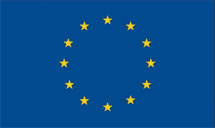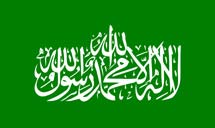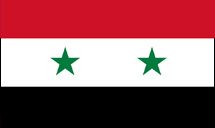Executive Summary:
Palestinian Islamic Jihad (PIJ) is a Palestinian Islamist terrorist group sponsored by Iran and Syria. Founded in 1979 as an offshoot of the Egyptian Muslim Brotherhood, PIJ is the second-largest terrorist group in Gaza today (after Hamas). The U.S. State Department claims that PIJ has fewer than 1,000 members, though in 2011 the group claimed to have at least 8,000 battle-ready fighters in Gaza.
PIJ is dedicated to eradicating Israel and establishing an autonomous Islamic Palestinian state in the lands currently comprising Israel, the West Bank, and Gaza. PIJ believes that the land of Palestine is consecrated for Islam, that Israel usurped Palestine, and, therefore, that Israel is an affront to God and Islam and that Palestine’s re-conquest is a holy task. Accordingly, PIJ refuses to negotiate with Israel, rejects a two-state solution to the Israeli-Palestinian conflict, and carries out numerous terror attacks against Israeli targets and interests. Unlike Hamas, PIJ does not participate in the political process or provide social services.
PIJ’s primary sponsor is Iran, which has provided the group with millions of dollars in direct funding, as well as training and weapons. PIJ has partnered with Iranian- and Syrian-sponsored Hezbollah in carrying out joint operations.
Based in Gaza until 1987, PIJ’s leadership was then exiled to Lebanon, where it reportedly began cooperating with Hezbollah and began receiving training from Iran’s Islamic Revolutionary Guard Corps. PIJ’s leadership relocated to Syria in 1989, but left a small group in Lebanon that launched joint attacks with Hezbollah in the 1990s. Syria has also provided military aid and sanctuary to PIJ, allowing the terrorist group’s leadership to occupy a Syrian Army base from 1989 until 2012.
According to the U.S. State Department, PIJ’s senior leadership continues to reside in Syria and some other leaders live in Lebanon, though most PIJ members live in Gaza. International Arabic-language newspaper Asharq Al-Awsat reported in 2012 that PIJ’s Syria-based leadership had relocated to Iran but continued to enjoy positive ties with their Syrian patrons. However, a PIJ official denied that report, claiming “relations between [PIJ] and the Syrian government are excellent, unlike Hamas,” whose leadership left Syria after refusing to support the Assad regime during the Syrian civil war. Official representatives of the group are also stationed elsewhere in the Middle East, including Iran.
Doctrine:
PIJ seeks to create a state based on sharia (Islamic law) in all the land between the Mediterranean Sea and the Jordan River—including Israel, the West Bank, and the Gaza Strip. Like Hamas, PIJ portrays the Israeli-Palestinian conflict as a religious clash, not merely a territorial dispute. PIJ believes that the land of Palestine is consecrated for Islam and that, therefore, Israel usurped Palestine. Consequently, Israel’s very existence is an affront to God and Islam, and destroying Israel and reconquering Palestine are religious obligations.
In PIJ’s ideology, an Islamic state of Palestine can be established only through jihad (holy war) and the destruction of Israel. According to the “Manifesto of the Islamic Jihad in Palestine,” a document discovered by federal authorities investigating a Florida man with suspected PIJ ties, the group rejects “any peaceful solution to the Palestinian cause” and affirms “the Jihad solution and the martyrdom style as the only choice for liberation.” Accordingly, PIJ completely rejects negotiations with Israel or a two-state solution.
PIJ’s founders, Fathi Shaqaqi and Abd al-Aziz Awda, drew initial inspiration from the Egyptian Muslim Brotherhood. However, both men left the Brotherhood in the late 1970s, feeling the group had become too moderate and did not focus enough on the plight of the Palestinians. Inspired by Ayatollah Khomeini’s Islamic Revolution in Iran, Shaqaqi and Awda founded PIJ on the principles Khomeini advocated, with the goal of creating an Islamic state within the land that constituted the Palestine mandate prior to Israel’s creation in 1948.
PIJ is dedicated singularly to violent jihad. While Hamas has engaged in indirect talks with Israel (including on prisoner exchanges and ceasefires), PIJ refuses to negotiate with Israel (though the group has participated in pan-Palestinian ceasefires negotiated by Egypt). Also unlike Hamas, PIJ generally does not provide social services. However, in 2013, when Iran and Hamas were estranged due to Hamas’s abandonment of the Iranian-allied Assad regime in Syria’s civil war, Iran tasked PIJ with distributing $2 million in Iranian food aid in Gaza from the Imam Khomeini Relief Foundation, a Beirut-based Iranian charity. The New York Times interpreted the move as an attempt to extend Iran’s influence in Gaza while undermining Hamas and strengthening the rival PIJ.
Organizational Structure:
Ramadan Shallah served as PIJ’s secretary-general from 1995 until 2018. That September, PIJ’s leadership council elected Ziad al-Nakhalah to be the new secretary-general. PIJ is governed by a leadership council. PIJ elected nine new members to the council in September 2018 in the group’s first international elections since 1980. The political council is made up of 15 members, nine of whom are elected by balloted voting. The secretary-general appoints two members, and the remaining four are approved by the council. The council represents PIJ members in the West Bank, Gaza Strip, Israeli prisons, and abroad. Elections are reportedly to be held every four years.
PIJ’s leadership has operated from Syria since 1989, when they relocated from Lebanon after Israel expelled them a year earlier. In 2012, rumors circulated that the group’s leadership had relocated to Iran, but a PIJ official denied that. According to the U.S. State Department, PIJ operates primarily in the Gaza Strip but its leaders also live in Lebanon and elsewhere in the Middle East.
The al-Quds Brigades, PIJ’s armed wing, carries out violent attacks against Israel. The Brigades has regional staff commands. Each member within a command oversees a cell within that command’s region. The PIJ leadership issues orders and staff commanders carry out PIJ operations and coordinate cells. The U.S. State Department claims that PIJ has fewer than 1,000 members, though the group claimed in 2011 to have at least 8,000 battle-ready fighters in Gaza.
Financing:
Iran is PIJ’s primary source of financial support, according to the U.S. State Department. A 1998 lawsuit against Iran in U.S. federal court revealed that the Islamic Republic allocated $2 million in its annual budget to PIJ. That number has since skyrocketed—in late 2013, PIJ sources revealed that the terror group received about $3 million per month from Iran. During the 2012 war between Israel and Hamas, PIJ fired rockets into Israeli territory and hung banners across Gaza streets with the phrase, “Thank you, Iran.” A February 2014 report by Ali Nourizadeh, director of the Center for Iranian Studies in London, stated that Iran provides PIJ with $100 to $150 million annually.
In mid-2015, a senior PIJ leader said the group was suffering from its worst financial crisis in history. One PIJ leader attributed the crisis to Egypt’s closure of the smuggling tunnels beneath the Gaza-Egypt border. The same source also said Iran had cut back its funding to the group. Iran reportedly cut funding because PIJ refused to issue a statement supporting Iran in its conflict against Saudi Arabia in Yemen. Iran had reportedly cut PIJ’s funding by 90 percent as of January 2016. The loss in funding allegedly forced PIJ to slash salaries of its employees. According to media reports, Iran still considered PIJ a “friend” but one the country is unable to continue to support financially. PIJ’s leaders insisted the group still had good relations with Iran.
In May 2016, the Iranian government reportedly restored its relations with PIJ with an annual allocation of $70 million. The allocation followed visit to Tehran by a PIJ delegation the previous month. As of August 2018, Iran reportedly transferred $30 million annually to PIJ and $70 million to Hamas. In February 2019, PIJ spokesman Abu Hamza told Iran’s Al-Alam TV that “since the day of its establishment, the Islamic Republic [of Iran] has been supporting the Palestinian fighters financially, militarily, in raining, and in all aspects.”
A U.S. lawsuit filed in June 2020 alleged Qatar provided funding to Hamas and Palestinian Islamic Jihad (PIJ) through three Qatari financial institutions, the Qatar Charity, Masraf Al Rayan, and Qatar National Bank. The Qatar Charity is a member of the U.S.-sanctioned Union of Good charity network. All three institutions have links to members of the Qatari royal family. The plaintiffs are friends and family members of 10 victims who died in terror attacks in Israel carried out by Hamas and PIJ. The lawsuit accuses Qatar of coopting “several institutions that it dominates and controls to funnel coveted U.S. dollars (the chosen currency of Middle East terrorist networks) to Hamas and PIJ under the false guise of charitable donations.”
Recruitment and Training:
Recruitment
Fathi Shaqaqi founded PIJ after being jailed for his involvement in the Palestine Liberation Force. Original PIJ recruits included ex-prisoners Shaqaqi met in jail, upon their return to the Gaza Strip. Shaqaqi was also able to recruit in the early 1980s through early PIJ member Abdul Aziz Awda, a popular preacher and professor of Islamic law. Awda attracted many to the PIJ cause through his sermons at one of Gaza’s largest mosques.
Since PIJ’s goal has always been to execute strategic military operations against Israel, the group has focused on targeted recruiting rather than simply gaining a large membership. For example, PIJ recruited students to demonstrate at Bir Zeit University in the early 1980s. An April 1987 incident resulted in Israeli forces opening fire on demonstrators, resulting in the death of one student.
PIJ’s leadership began recruiting suicide bombers in the early 1990s and originally did not permit women to serve in that role. However, PIJ officially began recruiting female suicide bombers in 2003, justifying women bombers as defending their honor against Israeli invaders. PIJ’s first female suicide bomber, a 19-year-old student named Hiba Daraghmeh, attacked a shopping mall, killing three. The next such bomber, Hanadi Jaradat, a 29-year-old lawyer, blew herself up in a restaurant in October 2003, killing 21. Selection and persuasion methods for women suicide bombers are similar to those employed for men. Recruiters of female suicide bombers “take advantage of the candidates’ innocence, enthusiasm, personal distress, and thirst for revenge,” according to U.S. Army civilian professional Debra Zedalis.
In 2015, PIJ reportedly recruited 200 men between the ages of 19 and 22. According to a 2018 estimate by the U.S. State Department, PIJ has almost 1,000 members.
Training
Like other violent Islamist groups, PIJ uses training methods and tactics such as exercises in suicide operations and battlefield tactics against Israeli soldiers. PIJ has boasted of opening its ranks to children as young as six years old. PIJ “summer camps” draw as many as 10,000 participants per session. The camps’ activities include wielding AK-47s, planting land mines, and mock operations to kidnap Israeli soldiers. PIJ spokesman Daoud Shihab describes such training of children as a way to ensure “a generation strong [in] resistance.”
These “Generation of Faith” camps are not restricted to combat training, however. Recruits are “educated intellectually, militarily, and politically.” Ahmad al-Moudalal, a PIJ leader who helps to train children fighters, explained, “We are resistance movements. It is therefore normal for us to want to attract young people, instill the culture of resistance in their minds and prepare them to bear arms against the Israeli enemy.”
According to the U.S. State Department, members recruited in 2015 were subjected to training programs between 36 days and six months.
Also Known As:
- Abu Ghunaym Squad of the Hizballah Bayt Al-Maqdis
- al-Awdah Brigades
- al-Quds Brigades
- al-Quds Squads
- Harakat al-Jihad al-Islami al-Filastini
- Harakat al-Jihad al-Islami fi Filistin
- Islamic Holy War
- Islamic Jihad
- Islamic Jihad–Palestine Faction
|
- Islamic Jihad in Palestine
- Islamic Jihad of Palestine
- Islamic Jihad Palestine
- Palestine Islamic Jihad
- Palestine Islamic Jihad–Shallah Faction
- Palestine Islamic Jihad–Shaqaqi Faction
- PIJ–Shallah Faction
- PIJ–Shaqaqi Faction
- Saraya al-Quds
|





















